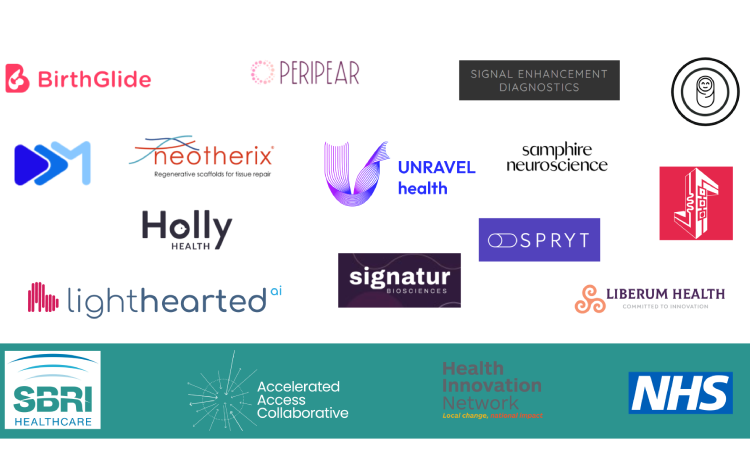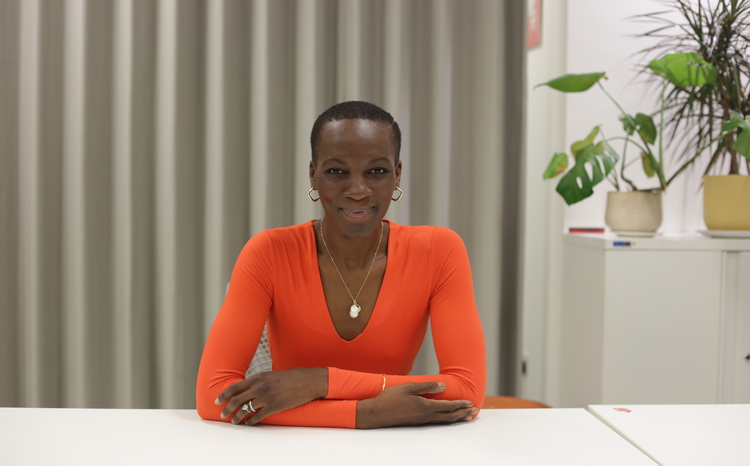FemTech has a key part to play in women’s health strategy

Following a recent roundtable on FemTech, Jenny Thomas, programme director at DigitalHealth.London, explores how it can help shape women’s health strategy.
On 12 May I was invited to a roundtable on FemTech (Women’s Health Strategy – Health Technology) by Lord Bethell, UK Minister for Innovation. Was this the first ever UK governmental roundtable on FemTech? Most likely.
The government launched a call for evidence on 8 March 2021. In it, the Secretary of State for Health and Social Care, Matt Hancock wrote: “For generations, women have lived with a health and care system that is mostly designed by men, for men. This has meant that not enough is known about conditions that only affect women, or about how conditions that affect both men and women impact women in different ways”. What a bold and powerful position statement!
I believe there are a few key people behind the scenes who have made it their mission to ensure this important work takes place.
Emma Dean, for example, one of Matt Hancock’s special advisers, is passionate about women’s health and deserves special mention. Lord Bethell is well versed in women’s health statistics – did you know for example that women spend more time in ill health than men, are more likely to lack digital skills and yet are more likely to access digital healthcare services? As someone who describes themselves as “obsessed with health tech apps”, Lord Bethell, genuinely believes in the potential of FemTech to transform women’s lives.
FemTech has huge potential
Twelve diverse and impressive individuals were invited to the FemTech roundtable, brimming with views on the subject.
Rachel Dunscombe, CEO of the NHS Digital Academy, referenced the opportunity of FemTech to improve convenience and accessibility, and tailor healthcare to the individual. A digital pathway for endometriosis would enable more frequent check-ins and the ability to support patients when they need it most.
Vic Rayner, CEO at National Care Forum, spoke about the power of data and AI to enable women in later life to live more independently. This view was supported by Jo Cheshire, of WCS Care, who explained how digital solutions empowered care homes to better support residents for example with fluid management.
“There is a huge need for education about all aspects of women’s health. This needs to be personalised and delivered in a way that is digestible and accessible. Static content is not enough. People want support that evolves as their lives change, and to have their questions answered,” explained Mridula Pore, CEO and Co-Founder at Peppy. Convenience is key, women are busy and overstretched, particularly in mid-life. Tech, like Peppy Health, can enable this, supporting women going through life transitions like the menopause and becoming a parent.
There is huge demand from women for healthcare information. It is one of the most searched for categories on Google. Liz Ashall-Payne, CEO of Orcha, said “We need to know which digital health tools can be trusted before deployment…only 15% of FemTech apps meet quality thresholds.” Orcha has reviewed hundreds of the FemTech market’s most downloaded apps, looking at 350+ criteria across the components of data security, clinical assurance, and user experience.
Measuring the impact of FemTech solutions can be challenging as baseline data sets aren’t always there but generating the momentum for change requires data. Edwina Dunn, Founder and Chair of the Female Lead, advocated the importance of listening to women’s stories and learning what they need and want. She says: “Voices and data will help healthcare professionals and leaders to understand the public need and prioritisation.” I believe it will too.
My reflections
In my view there is a lot more to be done in the FemTech space, including;
- Increased education and awareness of the opportunities of FemTech. I am doing my best to champion these opportunities where I can, for example through working with FemTech Insider on FemTech TV, a series of interviews talking about innovation in women’s health. Organisations like Women of Wearables (WoW) are also working to inspire and connect people in this space – I recently wrote a blog for WoW on how FemTech can help the NHS. There are so many tools and channels we can use to increase awareness of FemTech – let’s use them!
- Increased digital literacy support and access for NHS staff and patients with a focus on women’s health professionals and women themselves. This could for example mean more programmes like the Digital Academy or DigitalHealth.London’s Digital Pioneer Fellowship which supports NHS staff to adopt innovations or it could be the creation of specialist women’s health digital roles such as the digital midwife.
- New NHS data sets on female health outcomes supported by commissioning intentions and specifically mentioned as part of the annual NHS Priorities, and Operational Planning Guidance to NHS leaders
- More bespoke education and networking programmes for FemTech entrepreneurs, whether that’s specialist programmes like the DigitalHealth.London Accelerator, the FemTech Lab and the NHS Innovation Accelerator, or organisations like the Academic Health Sciences Network (the innovation arm of the NHS) which can support FemTech founders.
- More funding for FemTech businesses. This includes both Government grants and venture capital. We know 80% of FemTech founders are women and yet less than 2% of all venture capital is invested in women led companies (Pitchbook, 2021).
What’s next?
Minster for Innovation, Lord Bethell, said: “There is no reason why women should spend more time in ill health, have decreased access to GPs or be less likely to be given CPR than a man. We know there is much more to do if we want to achieve genuine gender equality in our health system.
“Technology has a vital role to play and I have long believed that health technologies represent a treasure trove of possibility for how we support patients. The government is clear that innovations like FemTech can play a fundamental part in how we deliver the best care for patients.
“I urge anyone who is yet to respond – tell us what matters to you and what you want to see in the Women’s Health Strategy. We all have a responsibility to do what we can to improve women’s health and make sure the health system – from diagnosis and treatment to research and technology – is meeting women’s needs.
“Our next steps will be to analyse the responses to understand women’s experiences and views of the healthcare system ensuring their voices at the centre of our new Women’s Health Strategy.”
If you want to inform the UK government’s Women’s Health Strategy, you have until 13 June 2021 to respond. This is a great opportunity for FemTech entrepreneurs, women’s health and care professionals, researchers, third sector organisations, and indeed any individual, to share their perspectives and experiences of women’s health!





